German fairs abroad: Not without my daughter
When German fair companies go out into the big wide
world, they often do so via daughter companies or joint ventures. The
constellations are manifold.
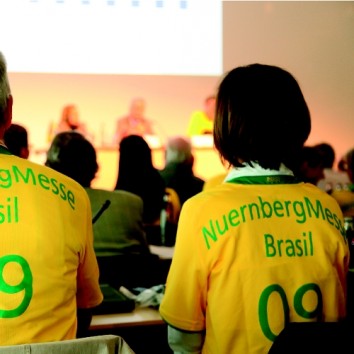
Not every event that is assertively described as a “fair abroad” on the agenda of some German fair companies, really is just that. German group presences are frequently also described as a kind of trade show – mostly marked by an asterisk. In the small print further below you then find out what it really is. For this year the Association of the German Trade Fair Industry AUMA lists 315 “true” German fairs abroad with German organisers as major stakeholders. However, the size of their stake may vary considerably. Two-thirds of all events take place in China, Russia, India, Turkey and the USA. In total, AUMA and FAMA members are planning foreign trade shows in over 35 countries.
How the companies implement trade show projects depends on the situation of the industry and the respective market. Messe Berlin, which is rather reticent when it comes to organising fairs abroad, founded a joint venture in the middle of the last decade for the Asian spin-off of Fruit Logistica: Global Produce Events. The Berliners hold a stake of 70 per cent. The remaining shares are held by UK-based Fruitnet, a competent partner for event organisation, media and Asia. In contrast, Messe Berlin organises the travel show ITB Asia in Singapore via a wholly owned, eponymous subsidiary (www.messe-berlin.de).
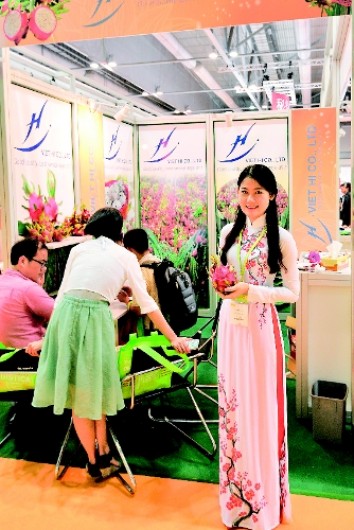
In the past German fair
companies often founded such daughter companies themselves. In part, this was a
shy response to the sceptical stance of municipal owners towards foreign
activities in the past. They believed that trade shows in the Far East would
hardly help win votes in the German elections. But this careful approach to
venturing abroad has long turned into a more pro-active strategy. And nowadays public
German fair companies often take a chequebook on their travels. At the start of
the millennium Messe Frankfurt purchased the fair company Epoc in Dubai as a subsidiary.
In doing so, the Frankfurters entered new terrain with the acquisition of safety
& security trade fair Intersec. This added a new facet to their so-called
“brand name strategy”. This was the first time Messe Frankfurt ventured into
foreign markets with a topic for which there was no domestic event. Now, the Frankfurters
stage an entire range of security fairs world-wide – and they have ramped up
their event agenda with further acquisitions (www.messefrankfurt.com).
NürnbergMesse also gained
access to a new market by purchasing a daughter company. This was back in 2009,
when NürnbergMesse bought what is now its Brazilian subsidiary, whose events are
compatible with the fair’s domestic agenda. Nielsen Business Media was renamed NürnbergMesse
Brasil. The fair organiser followed a different approach in India, where a
subsidiary was founded in 2013. The trade fairs and exhibitions manager at the
German Foreign Chamber of Commerce was appointed as its managing director. The
Nurembergers had already been cooperating with her on the Indian market (www.nuernbergmesse.de).
Participation in fairs abroad generates sales worth billions
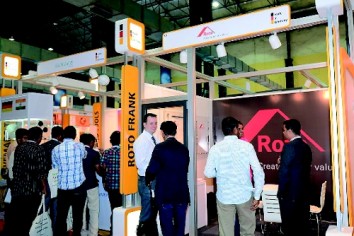
The “Trade Fairs Abroad”
programme of the German economics ministry especially helps small and
medium-sized enterprises take part in group stands at fairs abroad on
favourable terms. These participations under the “Trade Fairs Abroad” scheme of
the German economics ministry are an important pillar of promoting German
exports. This was the outcome of a recent survey by the market research
institute TNS Emnid, published by AUMA. Exhibitors of the “Trade Fairs Abroad”
programme were interviewed in 2012 and 2013. Approx. 87 per cent of the
participating companies were able to boost or secure exports thanks to the scheme.
Small and medium-sized enterprises generated total export sales of 5.4 billion
euros in 2013 thanks to their participation in foreign fairs with support from the
German government. The study also shows that exports account for 56 per cent of
total sales of the participating companies – a much larger share than that
achieved by German exhibitors who are not supported by the programme. According
to a survey, exports account for 31 per cent of sales on average of German
exhibitors. The export markets of the interviewed exhibitors are more or less identical
to the regional focus areas of the “Trade Fairs Abroad” scheme. Most of the new
markets targeted by the participants are in the BRIC countries. To access these
markets 81 per cent want to use trade fairs as a marketing tool. And 83 per
cent of all interviewed firms are small or medium-sized enterprises with less
than 500 employees. On average, an exhibitor takes part in 2.25 group
participations a year (www.auma.de).
Author: Peter Borstel
This article was published in TFI issue 2/2015
Share in Facebook, Twitter or Google+:
TFI - Trade Fairs International - The International Trade Fair Magazine.
© 2006 - 2024 by TFI-Verlagsgesellschaft mbH. All rights reserved. TFI-Verlagsgesellschaft mbH shall accept no responsibility for the contents of external links and other contents.
TFI-Know-how
-
What to do when things go wrong at virtual or in-person events?

In the event world, it’s simply part of life if things don’t work out as planned.
-
How can networking be made to work at online events?

Networking typically happens at real, in-person events. But it’s also possible to do it online; it just works a little differently. There are various options available to organisers.
-
How can exhibitors stand out at trade fairs?
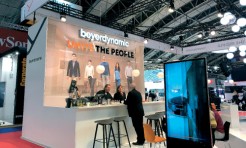
New products and a well-conceived stand design are not the only drivers for a successful presence. Many other factors are also important, but trade fair planners often lose sight of them.
-
How can industry decision-makers be reached online?
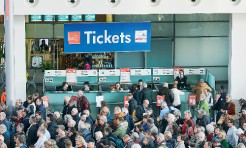
Trade fairs and trade fair companies need to constantly further develop, become more agile and flexible and offer services all year round. New, digital offerings are very important here. With its TrustedTargeting technology, Messe München offers its customers access to leading business-to-business decision-makers on the Internet.


